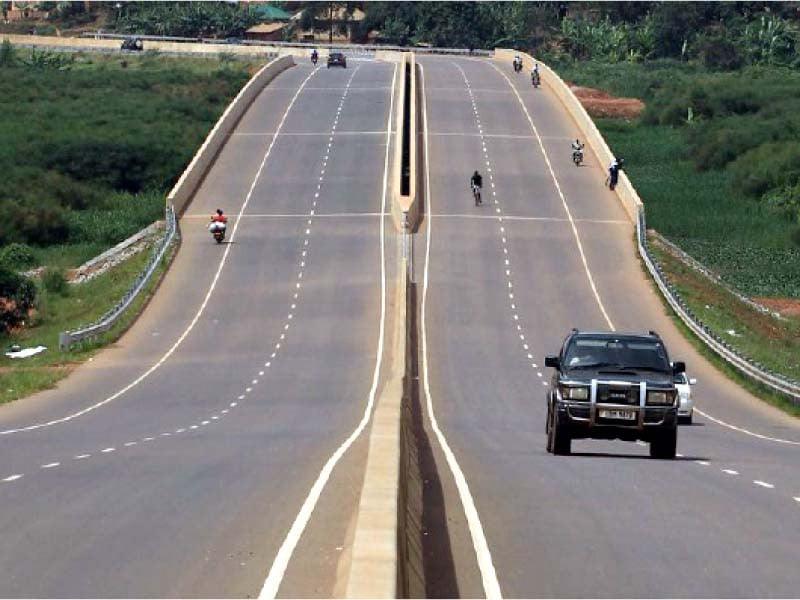Islamabad:
The Federal Government on Wednesday approved the construction of the Sukkur-Hyderabad highway (M-6) at a cost of RS395 billion, in 138%, and established a ministerial panel to find credible sources of financing, bringing the project in the public sector financing mode.
The Central Development Labor Party (CDWP), at a meeting chaired by Planning Minister Ahsan IQBAL, approved 10 different development projects, including Hyderabad-Sukur highway 306 kilometers long. The CDWP has sent the highway project to the Executive Committee of the National Economic Council (ECNEC) for final approval.
It is the fourth time that the highway project has gone to the federal government’s approval stage after the first three attempts to complete it in the public-private partnership mode failed.
The project had been approved for the first time in 2020 at a cost of RS165 billion. Then, the cost was checked to RS191 billion in 2021 and the third time was approved at a cost of RS308 billion in 2022.
The fourth approval has been granted at a total price of RS395 billion, for RS229 billion or 138% compared to the first approval of the five years. The project has also brought back in the fold of the public sector development program, although the CDWP has kept the private association option open.
The Hyderabad highway to Sukkur is the only vital link remaining from north to south connectivity and is a priority of the Popular Party of Pakistan. The PPP has linked its support for the budget with the acceptance of all its demands, including the inclusion of the highway in the Federal PSDP.
The Government has assigned RS15 billion for the construction of the project in the next fiscal year, which is lower than the estimated 78 billion required for the first year of construction.
Iqbal directed the National Road Authority and the Division of Economic Affairs to ensure that at the end of August the confirmation of funds is presented for the remaining sections of the project.
IQBAL announced the formation of a high -level committee chaired by the Federal Finance Minister to finish the credible financing sources.
The Committee will include the federal ministers of Communications, Economic Affairs and Planning, together with senior officials of the NHA and the Ministry of Communications.
The planning minister proposed to explore innovative financing modes to accelerate the implementation of the project and guarantee its timely completion.
The Government has been launching the project in different forums, even for funds under the economic corridor of China-Pakistan, Azerbaijan and the Islamic Development Bank. Until now, the Islamic Development Bank has indicated its interest in potentially financing the last three of five sections with a loan of $ 475 million. The IDB will be expected to learn the loan for September of this year. The CDWP IQBAL President instructed the authorities to find the financing routes for August of this year for the project to be completed in a timely manner.
The Islamic Development Bank has indicated that they will approach other financiers such as the Arabio Development Group and the Asian Infrastructure Investment Bank (AIIB) to finance the first two sections of M-6.
The National Road Authority has proposed that the first two sections are completed under the mode of public private association. However, the Planning Commission has opposed that the approval of the PPP Authority Board was not available, which was mandatory.
Due to the large size of the project and financial limitations, the NHA has planned to undertake the Motoway M-6 project in sections and in the mode of hybrid financing. The remaining sections that depend on their commercial viability will be offered to carry out in the private investment mode under the PPP agreement.
IQBAL declared that the execution of this project will bring substantial social benefits and will have great importance in promoting the economic development of Pakistan. He stressed that, as part of the national program to expand the highway infrastructure of the country, this project will help stimulate growth in areas throughout its alignment and improve regional connectivity.
Eastbay Highway
The CDWP also recommended the construction of the Eastbay Expressway Phase II project at a cost of RS30.2 billion to ECNEC for greater consideration. It is proposed that the project be financed through foreign funds: Chinese subsidy to help the cost of 95%.
The project foresees the construction of an Dual Carreras Highway of 13.8 km long to connect the new Gwadar International Airport (NGIA) with the end point of the existing Eastbay highway. This high -speed limited access road is designed to facilitate heavy load traffic between NGIA and the Gwadar port. The project also includes essential infrastructure, such as a rainwater drainage system, toll square, safety fence, watch towers and street lighting.
Proposed under the CPEC, the project was discussed and prioritized during the Multiple Joint CPEC Cooperation Committee with the Chinese side emphasizing its importance to improve connectivity and operational efficiency in the port.
The CDWP also recommended the construction of Zhob to Makhter Road at a cost of 15 billion. The construction of a road to connect to the Iran border was approved at RS11 billion costs. The objective of this road construction project is to develop a safe, efficient and lasting transport route that connects key locations, improving general accessibility and mobility within the region.




